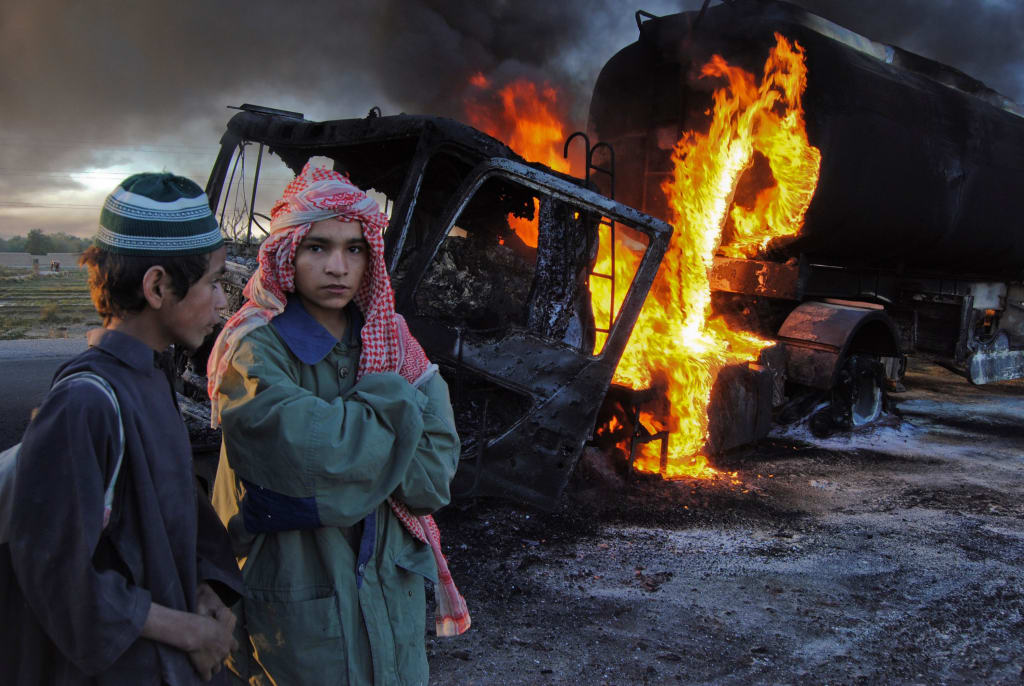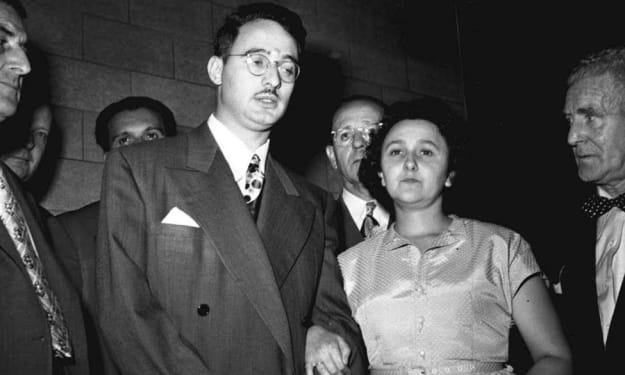How can terrorism be defined?
It is not easy to find a universally acceptable definition

When President G W Bush, in the wake of the outrages of 11th September 2001, declared his “war on terror” I remember thinking at the time that there was something unsatisfactory about this terminology. How can you fight a war against a concept? On the other hand, I suppose that it is no stranger than fighting a “war on poverty” or a “war on waste”.
However, although most people would agree that poverty, waste, disease, and many other ills that we can fight global campaigns against, are easily recognizable, the same is not true of terrorism. The statement that “one’s man’s terrorist is another man’s freedom fighter” is absolutely true, so finding international agreement on what constitutes terrorism is likely to be an impossible task.
At the outset, I think we need to distinguish “terror” from “terrorism”. The most basic definition of terror is “extreme fear”, which can be caused by many things, although the word is usually used when the person experiencing terror is in fear of their life. On the other hand, we also use the word in a trivial way, for example when a young child is described as a “little terror”; but this is a million miles away from the world of Al Qaeda and ISIS.
The word “terror” was first used in a political sense in the phrase “Reign of Terror”, coined during the French Revolution when the revolutionary government under Robespierre used the state apparatus of torture, kangaroo courts and mass executions to place France in a state of continual fear. The knowledge that your life was in jeopardy if you opposed the governing faction was enough to preserve a kind of peace.
Political motives
But this is not what we mean by terrorism today. There would seem to be one factor that must be present if an act can safely be defined as a terrorist one, which is that the motivation of the perpetrator is political. A murder committed with any other motive is not an instance of terrorism. Therefore, the Oklahoma City bombing by Timothy McVeigh was a terrorist act because he was deliberately seeking to punish the United States government for its previous actions. Had his motivation been non-political, such as hatred for one or more of the individual victims, then he would not have been a terrorist. However, I can well understand that many people would have a problem with that distinction.
The definition of a “political act” is not an easy one. It could be argued that McVeigh was not a terrorist because he was seeking to punish a government and not to overthrow one. On the other hand, Lee Harvey Oswald was a terrorist because he sought to change the government by removing its head. On that argument, whether or not 9/11 was a terrorist act would have been open to question, only to be decided when the motivation of the perpetrators was known and appreciated. However, that sounds like mere sophistry, or playing with words to trivialise a terrible tragedy, and I would agree with that view. It seems very odd to say that the label of terrorism cannot be applied until you know the identity of the terrorists and their motivation, so perhaps we cannot be so certain after all that we have clarity on this point of political intent.
Based on who the victims are?
Maybe we can define terrorism in terms of its victims? Terrorist acts are normally thought of as being committed against civilian populations, who are not the actual people that the terrorists really want to kill. A country’s government takes actions that a body of people do not like, and the response of those people is to attack the civilian population of that country, with a view to persuading the government to change its policies. That is therefore a terrorist act, by that definition.
Therefore, the bombing of civilian populations during a declared war is terrorism. That definition would include the German bombing of Coventry and the British bombing of Dresden, in World War II, and the nuclear bombings of Hiroshima and Nagasaki would certainly have to count as terrorist acts.
Likewise, no attacks on military personnel can ever be defined as terrorism, on that basis. When USS Cole was the victim of a suicide bombing by Al Qaeda in 2000, no civilians were involved, so was it a case of terrorism? Also, do diplomatic staff members count as civilians or not? So are attacks on embassies and individual diplomats terrorist or not? Maybe this applies only if they are military attaches?
Again, we get into murky waters when we try to apply precision to these definitions, and a firm statement as to what terrorism is and is not, especially one that could be agreed internationally, seems as far away as ever.
Based on who the perpetrators are?
A third way of looking at the problem might be to consider the people who commit the acts in question. Are terrorist acts only committed by people who are not members of official armed forces of internationally recognised governments? That would let the World War II governments, mentioned above, off the hook, and likewise any acts committed against civilian populations by soldiers who had exceeded their orders or interpreted them in a particular way. The label of “terrorism” can therefore not be applied in Iraq to what would otherwise appear to be murders of civilians.
Arguing this line further, the actions of the State of Israel can never be classified as terrorist, but those of their Palestinian opponents must always be so defined. The implication here is that one side has carte blanche in the eyes of the international community, but the other must never retaliate, and can never participate in negotiations, because it is a terrorist organization and cannot be regarded as anything else. Many people are perfectly content with that scenario, but I am not sure that I am, and I am also very unsure about this outcome being the basis of an internationally (beyond a very few countries, that is) accepted view of what constitutes terrorism.
We get into the murkiest waters when we start to make international policies based on who we will and will not talk to, based in turn on their attitudes towards terrorism. If we say that we will never talk to organizations that have resorted to terrorism, we will have very few conversations with anyone in the world of international conflict. In the Middle East, the strongest government in the region, namely Israel, was only founded after certain actions took place that have the smack of terrorism about them, such as the bombing of the King David Hotel in Jerusalem that killed 91 people. There are many other regimes around the world whose governments only came to power after many acts of violence were committed in their name, and which can only be regarded by a neutral outsider as being terrorist.
Indeed, how clean are the hands of the United States and other western countries? It was not so many years ago that the Reagan administration was openly supporting terrorist organizations in Latin America. Come to that, the United States was created by revolution, and it is surely not possible to carry out an armed rebellion without performing actions that must be regarded as terrorist in any reasonable definition.
No firm conclusion
No, I think it is impossible to come to a firm agreement on what constitutes terrorism. Too much depends on the justifications one allows for certain actions. Special pleading comes into the debate at every stage, and making comparisons between actions that may or may not be defined as terrorism leads to too many anomalies and absurdities. But, on the other hand, we all seem to be able to recognise terrorism when we see it.
About the Creator
John Welford
I am a retired librarian, having spent most of my career in academic and industrial libraries.
I write on a number of subjects and also write stories as a member of the "Hinckley Scribblers".






Comments
There are no comments for this story
Be the first to respond and start the conversation.